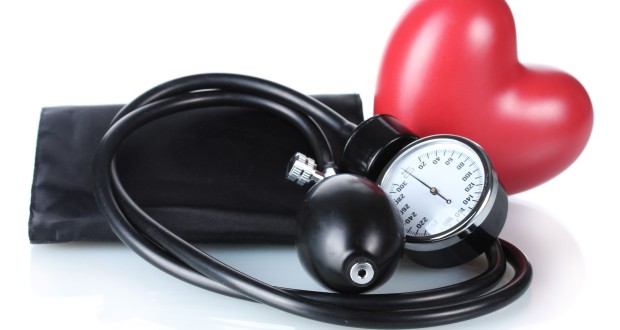Chances are you’ve recently overheard someone talking about his or her blood pressure, and the need to keep it at a healthy level. There is good reason for this concern – high blood pressure can lead to a variety of chronic and costly health problems. As with other long term health problems, being knowledgeable about the causes of high blood pressure can give you an excellent blueprint on how to prevent it.
What is High Blood Pressure?
The main task of the heart is to send blood throughout our bodies via large blood vessels known as arteries. As the blood pushes its way through our arteries, it creates a force known as blood pressure. High blood pressure, also referred to as hypertension, occurs when this force becomes excessively strong. Blood pressure is measured by the body’s systolic pressure over its diastolic pressure. Systolic pressure measures the pressure in the arteries as the heart contracts; diastolic pressure measures the arteries’ pressure between beats, as the heart is relaxing and refilling itself with blood.
A normal blood pressure is considered to be 120 to 129 over 80 to 84 mm Hg (systolic pressure over diastolic pressure). A high-normal blood pressure is 130 to 139 over 85 to 89 mm Hg. When a person has hypertension, their blood pressure usually measures in at over 140/90 mm Hg (systolic/diastolic). It should be noted that high-normal levels of blood pressure have recently been associated with the development of cardiovascular diseases like hypertension.
High blood pressure claims the dubious title of being the most common form of cardiovascular disease in the United States. It is estimated that one out of four American adults – some 50 million people – has high blood pressure. Senior citizens are especially at risk for developing this condition, as the walls of the heart’s arteries tend to lose their flexibility with age, leading to an increase in blood pressure.
The Possible Culprits behind Hypertension
Fortunately, high blood pressure can be easily diagnosed. While doctors cannot determine the exact cause of high blood pressure, they have developed a list of factors that can lead to hypertension:
- Stress causes hypertension by triggering the body’s sympathetic nervous system. This causes the arteries to tighten up and become less flexible.
- A diet high in sodium can lead to build up of water in the body (known as water retention) and expand blood volume. Both of these reactions increase blood pressure.
- Caffeine can send your cardiovascular system into overdrive, raising your blood pressure in the process.
- A deficiency of calcium, magnesium and potassium can result in hypertension.
- High blood pressure can be an after effect of insulin resistance, a condition that causes the kidneys to retain excessive amounts of sodium.
- Regular alcohol intake can cause hypertension.
- Carrying extra weight has been linked to multiple health problems, including high blood pressure.
- A number of medications can raise blood pressure as a side effect. This list includes steroids, birth control pills, decongestants, non-steroidal anti-inflammatory drugs (NSAIDs) and diet pills. Even some over-the-counter medications can cause hypertension; medicines such that include licorice root, ephedra, guarana, kola nut, yerba mate, ginseng and yohimbe may induce hypertension as a side effect.
Lifestyle Changes for Lower Blood Pressure
If you find yourself feeling the effects of high blood pressure, you might find relief by making a number of small changes to your diet and lifestyle. First, cut down on the caffeine. This means that you should limit the number of coffees, teas and sodas you drink per day. You should also consume fewer alcoholic beverages; your blood pressure increases as your body metabolizes alcohol. Try and kick your smoking habit if you have one, as smoking is another trigger behind hypertension.
A calmer demeanor also alleviates hypertension. There are a number of techniques that are proven to reduce stress, such as breathing exercises, yoga and meditation. In addition, you can lower your blood pressure by fitting in 30 minutes a day of moderate physical activity, such as walking. Finally, check with your doctor about any medications you are taking that might be causing hypertension as a side effect.
Fighting Hypertension through Diet
Not surprisingly, diet plays a major role in the condition of your blood pressure. To keep your blood pressure in check, load up on the fruits and veggies to the tune of 8-10 daily servings. Try to develop a taste for fish rich in omega-3s, such as wild Alaskan salmon and sardines. It is also beneficial to get 4-5 servings a week of nuts, seeds and dry beans. Your diet should also be high in magnesium and Vitamin C, as well as calcium (500-600 mg for men, 1000-1200 mg for women). Though it may temporarily give you bad breath, garlic has been shown to be fairly effective in easing hypertension.
On the flip side of the coin, there are certain dietary habits that should be avoided. Hypertension can be caused by sodium-filled processed foods. Salt may make all sorts of foods taste better, but it wreaks havoc on your blood pressure; it may be helpful to limit your salt intake to less than 2400mg daily. A healthier diet will also help you shed pounds, which in turn lowers blood pressure.
Like numerous other physical ailments, high blood pressure can be alleviated with common sense adjustments to your daily life. By eating better, exercising and avoiding hypertension triggers, you can reign in your high blood pressure and lead a less stressful life.
 Natural Knowledge 24/7 Educate yourself with nutrition, health and fitness knowledge.
Natural Knowledge 24/7 Educate yourself with nutrition, health and fitness knowledge.






